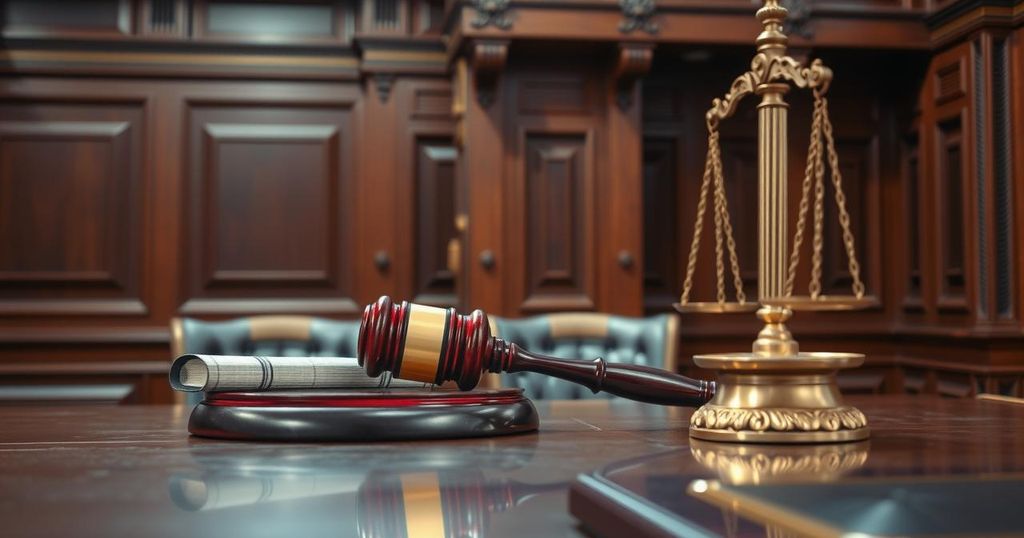Former Peruvian President Pedro Castillo is on trial for charges including rebellion and abuse of authority, linked to his failed attempt to dissolve Congress in December 2022. Following his removal, large protests ensued, resulting in numerous fatalities. Castillo, who faces a potential 34-year prison sentence, denies wrongdoing and has criticized the trial process as biased. This case reflects broader political divides in Peru and affects relations with leftist governments in the region.
Former Peruvian President Pedro Castillo has commenced trial facing charges of rebellion, grave abuse of authority, and disturbing public order. The accusations are linked to his unsuccessful attempt to dissolve Congress in December 2022 amid an impending impeachment vote against him. Following his failure to gain military backing for this maneuver, Castillo was ousted and arrested for allegedly attempting a coup, igniting nationwide protests that claimed at least 49 lives, particularly in southern Peru.
Castillo’s successor, Dina Boluarte, currently leads a conservative government. The trial is being conducted at the police facility where Castillo has been held since his failed attempt to dissolve Congress. Prosecutorial authorities are pursuing a severe 34-year prison sentence against Castillo, who gained prominence as a former union leader and educator by unexpectedly winning Peru’s presidency in 2021.
During the trial, which began with Castillo arriving late, he denied the charges. He claimed, “All I did was express the wishes of the people through a speech,” referring directly to his decree broadcasted on national television on December 7, 2022, which aimed to dissolve Congress.
Notably, Castillo opted to attend the trial without legal representation and described the proceedings as a “farce” on social media, while being assigned a public defender. He has attempted to dismiss one trial judge, alleging bias following her previous statements about his actions.
In addition to his current trial, Castillo is under investigation for corruption, specifically for allegedly providing military promotions irregularly and bypassing procurement standards for a bridge contract. Prior to his failed dissolution attempt, he had narrowly survived two impeachment votes.
Castillo, along with his supporters, contends that conservative factions within Congress obstructed his initiatives aimed at enhancing public spending and improving rural education and infrastructure. In opposition, Castillo faces accusations of corruption and threats to democracy, echoing past events from the early 1990s when President Alberto Fujimori similarly attempted to dissolve Congress, leading to authoritarian rule.
The political fallout from Castillo’s removal has negatively affected relations between Peru and leftist governments in Colombia and Mexico, where his family currently resides. Colombian President Gustavo Petro, a supporter of Castillo, criticized the trial, asserting that Castillo is being persecuted due to his socioeconomic background and political orientation. He remarked that the Peruvian authorities are “mocking” Castillo’s electorate as the country approaches elections scheduled for the following year.
Pedro Castillo’s trial represents a significant political and social event in Peru, indicative of ongoing tensions between different political factions. The charges against him, stemming from an attempted dissolution of Congress, have polarized public opinion and led to severe unrest. Castillo’s claims of misrepresentation and the response from allied leaders highlight the complexities surrounding governance and democracy in Peru today. As natural elections loom, the repercussions of this trial will likely influence the country’s political landscape.
Original Source: www.wral.com






